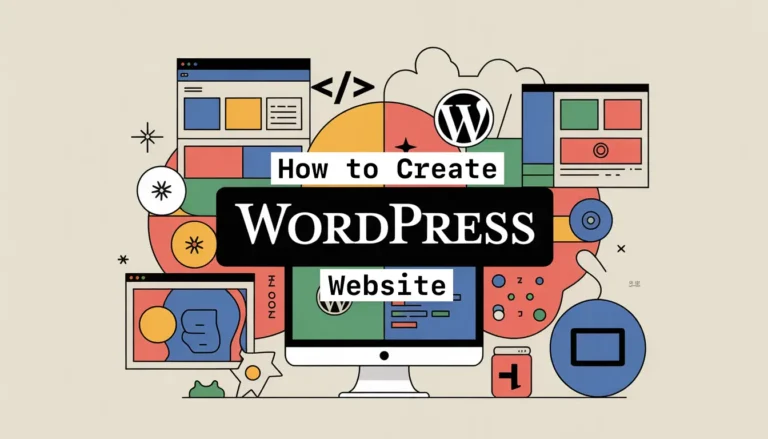I Analyzed 500 Startup Pitch Decks: Here’s What Investors Actually Look For
Disclaimer: This post may contain affiliate links, meaning I get a commission if you decide to make a purchase, at no extra cost to you. Read our disclosure

We used to think successful startup pitch decks were all about flashy slides and bold claims. But after analyzing 500 pitch decks (including Uber, Facebook, Tesla, YouTube and many others) I discovered that what really matters is simpler, and far more strategic.
Here’s what investors are actually looking for when founders approach them for funding.

1. Start with a killer Problem Statement
Your first slide can make or break your pitch. Founders often try to dazzle investors with lofty vision statements or flashy designs. But investors really want one thing at the start:
A clear, painful problem.
We found this trend in 9 out of 10 successful pitch decks: they opened with a relatable and specific problem. The most compelling problem slides made investors lean in within seconds.
Why It Works:
Investors are evaluating whether the problem is:
- Big enough: Does it affect enough people or businesses to create a massive market?
- Painful enough: Is it urgent and costly for customers to solve?
- Under-addressed: Are there weak or inefficient solutions currently available?
Pro Tip: Test Your Problem Statement
Ask potential customers: “Is this something you struggle with?” If they say, “Yes! How can I fix it?” your pitch is on the right track.

2. Sell the dream with “The Market Slide”
Investors aren’t just funding ideas. They’re funding market size. The market slide is where you sell the scale of your opportunity.
What Investors Want:
- TAM, SAM, SOM: Total addressable market (TAM), serviceable available market (SAM), and serviceable obtainable market (SOM). Yes, it’s a mouthful, but having these metrics quickly signals you’ve done your homework.
- Mega-numbers: Investors are drawn to 9 or 10-figure growth opportunities. If you claim your TAM is $5 billion, back it with credible statistics.
- Market Growth: Is your market expanding rapidly? Show strong evidence of upward trends.
What to Avoid
Never use generic statements like, “It’s a $10 trillion market!” if your business realistically addresses only a small fraction of it. Investors can spot baseless hype from a mile away.

3. The Solution Slide
A picture is worth 1,000 words.
Your solution slide should be crystal clear. Too many founders lose their audience here by diving into technical details or excessive jargon.
What Investors Want:
- Clarity and visual simplicity: A diagram, demo, or image that instantly shows how your solution works in context.
- Unique advantage: Why is your solution better, faster, or cheaper than existing options?
- Scalability: Show why your solution can evolve with demand. Investors care about ROI at scale.
Winning Strategy
Use minimal text and pair it with one powerful visual. Think of this slide as a “lightbulb moment” for your audience.

4. The Business Model Slide
Where are the $$$?
Even visionary investors want to know if your idea makes financial sense. This slide separates good ideas from fundable businesses.
What Investors Want:
- Revenue streams: Be specific. Are you subscription-based? Freemium? Marketplace-driven? Investors want to see multiple income options.
- Clear unit economics: Spell out customer lifetime value (LTV) versus customer acquisition cost (CAC). This ratio shows how profitable scaling your startup will be.
- Scalability: Show how revenue grows as operations increase. Massive recurring revenue potential wins trust here.
Key Tip
Keep it real and grounded. Don’t over-promise or use exaggerated revenue projections that undermine your credibility.

5. The Why Now Slide
Timing is everything. The best startups succeed because they enter the right market at the right time. Investors often focus heavily on this slide.
What Investors Want:
- Current trends: Economic, social, and technological factors driving demand.
- Disruption gaps: Examples of how legacy players are failing to innovate, leaving space for your solution.
- Urgency of adoption: “If we don’t do this now, we’ll lose X.”
Avoid this Mistake
Vague generalizations like “AI will change everything” won’t cut it. Be specific about why the market dynamics need your solution now.

6. The Team Slide
Convince the investors to bet on the founders.
This slide answers the critical question every investor has: Who’s steering this ship?
What Investors Want:
- Domain expertise: Does your team have deep knowledge of the problem and industry?
- Balanced skills: Are you covering leadership, technical, marketing, and operational competencies?
- Startup experience: Previous exits or success stories earn major trust points.
Key Tip
Don’t overload this slide with resumes. Highlight 2-3 specific examples that show why your team is equipped to succeed.

7. The Traction Slide
Proof beats promises!
This is arguably the most important slide for early-stage startups. Investors want to see evidence of momentum.
What Investors Want:
- Revenue milestones: Even small monthly recurring revenue (MRR) numbers signal validation.
- Customer growth: Show adoption trends like downloads, active users, or repeat buyers.
- Partnerships: Highlight deals that demonstrate industry buy-in.
- Press buzz: If media outlets are covering you, it’s a bonus.
Pro Tip
Investors pay close attention to growth rate, not just absolute numbers. If you’re growing exponentially, highlight it.

8. The Competition Slide
How do you stack up? Many founders shy away from addressing competition, thinking it weakens their pitch. That’s a mistake.
What Investors Want:
- Context, not fear: Competition means there’s demand for your solution.
- Positioning: Clearly show your unique value using a 2×2 matrix.
- Weaknesses of incumbents: Highlight why legacy competitors aren’t solving the problem effectively.
Key Tip
Own your competitive landscape. Boldly show why you have a real shot at becoming a leader.
9. The Ask Slide
Don’t be shy. Many founders botch their closing by being vague, leaving investors wondering how they can help.
What Investors Want:
- Specific funding amount: Precisely how much cash are you requesting?
- Clear allocation: Break down exactly how the money will be spent (e.g., product development, marketing, hiring).
- Realistic milestones: Detail what success looks like: X revenue by year-end, Y pilots launched in 3 months, etc.

10. Don’t Forget the Design
Finally, design makes or breaks your deck. It communicates professionalism and clarity.
What Works:
- Simple templates: Bold headings, easy-to-read fonts, and plenty of whitespace.
- Consistent branding: Cohesive color palettes and imagery.
- Animations sparingly: Use slide transitions to emphasize points, not distract from them.
The Surprising Truth About Investors
What we learned from analyzing 500 pitch decks can be summed up in one sentence: Investors fund clarity, not hype.
Founders often assume they need to promise the moon or overwhelm investors with numbers. But the best pitch decks balance ambition with realism, pure storytelling with hard evidence.
Remember: confidence is contagious. If your deck clearly articulates why the world needs your solution right now, investors will want to join your journey.
What other pitch-deck tips have you found game-changing?
Share them in the comments below!
Share this article ♥️





